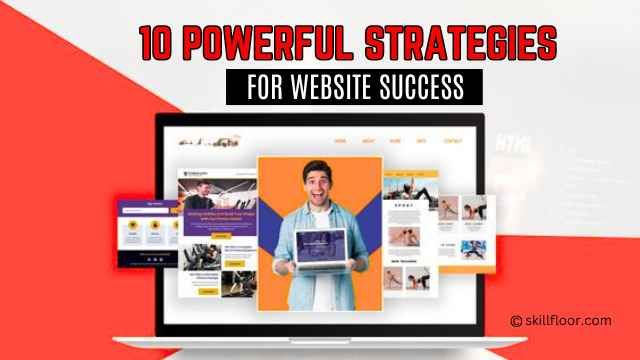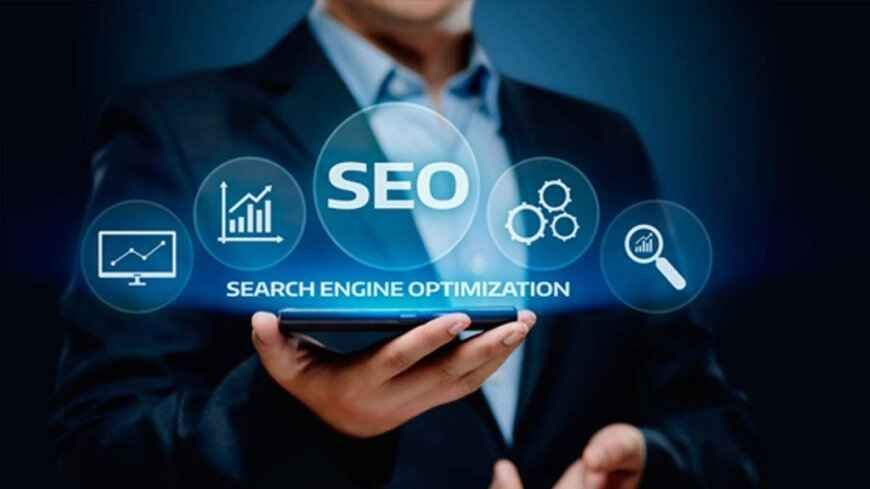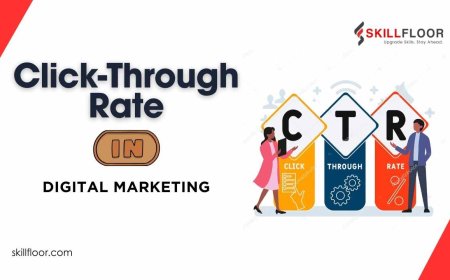10 Essential Online Website Marketing Strategies
Explore 10 essential website marketing strategies, including SEO, content marketing, and social media, to boost your online presence and drive conversions.

As someone who works in digital marketing, I’ve seen how important website marketing has become for businesses today. With more people shopping and searching online, having a strong online presence is key. If businesses want to stand out and attract customers, they need a good marketing strategy for their website.
What Is Website Marketing?
Website marketing is all about promoting a website to attract visitors. It includes different methods used to make a website more visible and engaging. The goal is to connect with potential customers, provide them with valuable information, and encourage them to take action, like buying something or signing up for a newsletter.
How can businesses create an effective website marketing strategy to engage their target audience?
Some common website marketing methods are:
-
Content Marketing
-
Social Media Marketing
-
Email Marketing
-
Pay-Per-Click Advertising (PPC)
Each of these methods helps businesses reach their goals in different ways.
Why Website Marketing Is Important
Understanding the significance of website marketing is crucial for businesses looking to thrive in the competitive online environment. Here are some key reasons why website marketing is essential:
-
Increased Visibility: A well-executed website marketing strategy enhances your online presence, making it easier for potential customers to discover your brand through search engines and social media.
-
Targeted Audience Reach: Website marketing enables businesses to reach specific demographics through tailored content and advertising. This targeted approach helps attract users who are more likely to convert into customers.
-
Brand Awareness and Credibility: Consistent marketing efforts help build brand recognition. A professional online presence conveys credibility, fostering trust among potential customers.
-
Cost-Effective Marketing: Compared to traditional marketing methods, website marketing can be more affordable, allowing businesses to allocate budgets more efficiently. Techniques like SEO and content marketing often yield long-term benefits without continuous investment.
-
Measurable Results: Website marketing allows for tracking and analyzing performance through various metrics, such as traffic, conversions, and engagement. This data-driven approach enables businesses to refine their strategies and improve ROI.
-
24/7 Availability: Unlike physical stores, a well-marketed website is accessible around the clock. This constant availability allows potential customers to browse and make purchases at their convenience, leading to increased sales opportunities.
-
Enhanced Customer Engagement: Engaging content, social media interactions, and personalized email campaigns help businesses connect with their audience. This engagement fosters loyalty and encourages repeat business.
-
Adaptability and Flexibility: The digital landscape is constantly evolving, and website marketing strategies can be quickly adjusted based on performance metrics, industry trends, and changing consumer behaviour.
-
Increased Conversions: By optimizing the website for user experience and implementing effective calls to action (CTAs), businesses can enhance the likelihood of turning visitors into paying customers.
-
Competitive Advantage: In a competitive market, an effective website marketing strategy can set a business apart. Companies that invest in their online presence are often better positioned to capture market share.
Challenges in Customer Connection
However many businesses struggle with website marketing. Here are some common problems they face:
-
Understanding Their Audience: Many companies don’t know who their customers are or what they want.
-
Choosing Marketing Channels: There are so many ways to market online that businesses often feel confused about where to focus their efforts.
-
Measuring Success: Without the right tools, it’s hard to see if marketing efforts are working or not.
These challenges can make it tough for businesses to connect with customers and grow.
10 Essential Website Marketing Strategies
Having established the importance of website marketing, let’s explore ten essential strategies that can significantly enhance your online presence and drive conversions.
1. Search Engine Optimization (SEO)
One of the foundational elements of website marketing is search engine optimization (SEO). By optimizing your website for search engines, you increase your chances of ranking higher in search results for relevant keywords.
-
On-Page SEO: This involves optimizing elements on your website, such as title tags, meta descriptions, and headings, with relevant keywords. High-quality content that addresses the needs of your audience is crucial for improving SEO.
-
Off-Page SEO: Building high-quality backlinks from reputable websites can boost your site’s domain authority. Guest blogging, outreach, and engaging with your industry community are effective ways to earn backlinks.
-
Technical SEO: Ensure your website is mobile-friendly, has fast loading speeds, and is easily crawlable by search engines. Tools like Google Search Console can help you identify and fix technical issues.
2. Content Marketing
Content is king in the digital world. Creating valuable and engaging content is essential for attracting and retaining your target audience.
-
Blogging: I recommend regularly publishing informative and engaging blog posts that address the interests and pain points of your audience. This not only positions you as an authority in your field but also improves your SEO.
-
Visual Content: Incorporating infographics, videos, and slideshows can enhance user engagement. People are more likely to share visual content, which can help increase your reach.
-
Ebooks and Guides: Offering downloadable resources in exchange for email addresses is a great way to grow your mailing list and provide value to your audience.
3. Social Media Marketing
Social media platforms provide an excellent opportunity to engage with your audience and promote your website.
-
Platform Selection: Identify where your target audience is most active and establish a presence on those platforms. For example, Instagram may be more effective for visual brands, while LinkedIn might be better for B2B companies.
-
Engagement: Share relevant content, respond to comments, and engage with your followers. Building a community around your brand fosters loyalty and encourages word-of-mouth referrals.
-
Paid Social Ads: Utilize paid advertising options on platforms like Facebook, Instagram, and LinkedIn to reach a broader audience. Targeting specific demographics can yield higher engagement and conversion rates.
4. Email Marketing
Email marketing remains one of the most effective ways to nurture leads and communicate with your audience.
-
Building a List: Create opt-in forms on your website to collect email addresses from interested visitors. Offering exclusive content or discounts can incentivize sign-ups.
-
Segmenting Audiences: Tailoring your email campaigns based on user interests and behaviours improves engagement. For example, sending personalized product recommendations can significantly enhance conversion rates.
Automated Campaigns: Set up automated email sequences for welcome messages, product recommendations, and follow-ups. Automation can save time while ensuring timely communication.

5. Pay-Per-Click Advertising (PPC)
PPC advertising allows businesses to drive targeted traffic to their websites quickly.
-
Google Ads: Utilizing search and display ads can significantly increase your visibility in search results. Careful keyword selection and ad copy can yield positive results.
-
Retargeting: Implement retargeting campaigns to reach visitors who previously engaged with your site but did not convert. This strategy helps keep your brand top-of-mind and encourages return visits.
-
Budget Management: Continuously monitor and adjust your ad spend to maximize ROI. A/B testing different ad copies and targeting options can provide insights into what works best.
6. Conversion Rate Optimization (CRO)
CRO is the process of optimizing your website to increase the percentage of visitors who complete a desired action, such as making a purchase or signing up for a newsletter.
-
A/B Testing: Experiment with different headlines, CTAs, and page layouts to determine what drives the highest conversion rates. Even small changes can lead to significant improvements.
-
User Feedback: Collect feedback from users through surveys or usability tests to identify areas for improvement. Understanding the user experience can lead to valuable insights.
-
Clear Calls to Action: Ensure your CTAs are prominent and compelling, guiding users toward the desired action. Use actionable language that encourages clicks.
7. Affiliate Marketing
Partnering with affiliates can help you expand your reach and drive traffic to your website.
-
Partnerships: Collaborate with affiliates who promote your products or services in exchange for a commission on sales. This strategy can significantly enhance your brand's visibility.
-
Influencer Marketing: Working with influencers allows you to tap into their audience and gain credibility. Choose influencers whose values align with your brand for authentic partnerships.
-
Tracking Performance: Use affiliate tracking software to monitor the effectiveness of your partnerships. This data will help you optimize your affiliate strategy.
8. Analytics and Reporting
To make informed decisions, it’s essential to analyze your website’s performance regularly.
-
Google Analytics: This powerful tool tracks website performance, user behavior, and conversion rates. Familiarizing yourself with its features can provide valuable insights.
-
Regular Reviews: Assess data regularly to identify trends, areas for improvement, and successful strategies. This ongoing analysis will inform your marketing efforts.
-
Adjust Based on Insights: Use the insights gained from analytics to refine your marketing strategies. Flexibility is key in adapting to changing consumer behavior and market trends.
9. Mobile Optimization
With the increasing use of mobile devices, optimizing your website for mobile users is crucial.
-
Responsive Design: Ensure your website is mobile-friendly and provides a seamless experience across devices. A mobile-responsive site can significantly improve user engagement.
-
Mobile-Specific Features: Consider features like click-to-call buttons for mobile users to enhance usability. Making it easy for mobile visitors to contact you can lead to higher conversion rates.
-
Fast Loading Speed: Optimize images and minimize scripts to improve loading times on mobile devices. A fast-loading site can reduce bounce rates and improve user satisfaction.
10. Local SEO
For businesses targeting local customers, implementing local SEO strategies is essential.
-
Google My Business: Create and optimize your Google My Business listing to enhance visibility in local search results. Ensure your business information is accurate and up-to-date.
-
Local Listings: Ensure your business is listed on local directories and review sites. Positive reviews can enhance your credibility and attract more customers.
-
Location-Specific Keywords: Use keywords related to your geographic area to attract local customers. This can significantly improve your visibility in local search results.
Having a solid website marketing strategy is essential for businesses today. By understanding what website marketing is and why it matters, you can take steps to improve your online presence.
Using these ten essential strategies will help businesses attract visitors, engage their audience, and convert them into customers. Regularly checking and updating marketing efforts based on performance data is key to long-term success. With the right approach, any business can thrive in the digital world!






























































